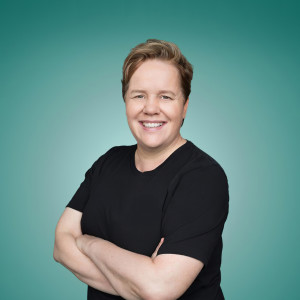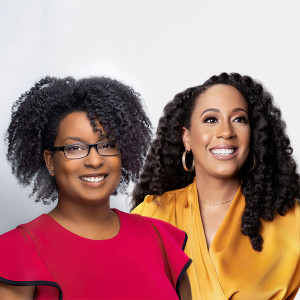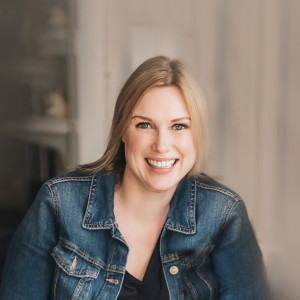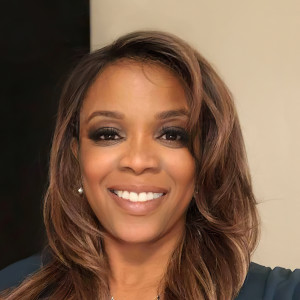The Fix
The Fix is a podcast that shares stories of women and men who are taking action and innovating to advance equality in the workplace and beyond.
The Fix is a podcast that shares stories of women and men who are taking action and innovating to advance equality in the workplace and beyond.
Episodes

Saturday Sep 05, 2020
Frances Frei: How To Tell If Your Workplace Is Toxic
Saturday Sep 05, 2020
Saturday Sep 05, 2020
In 2018, Uber Founder Travis Kalanick stepped down as CEO following a number of public scandals, which revealed the toxic organizational culture. Studies show that 40% of women with engineering degrees quit or never enter the profession, with the vast majority leaving due to hostile work environments. But how do so many young tech companies develop these types of toxic atmospheres and what can we learn from cases like these? This week, we are joined by Frances Frei, Professor of Technology and Operations Management at Harvard Business School and a workplace culture expert who helped turn Uber's culture around — serving as the company's first SVP of leadership and strategy. In this episode, Frances talks to us about how we can tell if our workplace is toxic and what companies can do to fix this.

Wednesday Aug 26, 2020
Robin Ely: COVID and the Need for Family Friendly Leaders
Wednesday Aug 26, 2020
Wednesday Aug 26, 2020
Women who might have been considered for leadership roles often find that their dedication and capability are called into question as they approach motherhood. Simply being at a point in life where society assumes that women might want to have children can stall their career progression. Motherhood is a clear sign women are betraying the ideal worker standard. When women go on maternity leave, return to work, or take up flexible workplace practices, they face a range of beliefs and behaviors that serve to devalue them and their contribution. With COVID-19, these challenges have never been more difficult to overcome, as women are more likely to care for children and support them with homeschooling, while at the same time working from home. Women do all of this and then are more likely to be penalized for it, by their employers as they are perceived to be less committed, ambitious and serious about their work. To support women at work, we need company cultures that provide more than accommodations. We need leaders who adopt and value family-friendly practices.On this episode, Robin J. Ely, a Professor of Business Administration at Harvard Business School, will join us to discuss what is really holding women back at work.

Wednesday Aug 19, 2020
Erin Dowell and Marlette Jackson: Woke Washing Your Workplace
Wednesday Aug 19, 2020
Wednesday Aug 19, 2020
Today, companies want you to believe that they are not just selling a car, shampoo, or a pair of jeans, but rather they are fighting for gender and racial equality in an attempt to connect with millennials who are willing to spend more money on socially conscious products. Brands have started using progressive values as a marketing ploy and are appropriating social activism as a form of advertising.Companies want consumers to believe that this is not simply about commercial gain rather, openly advocating for social issues is a communication of what the company stands for. But what happens when people who work for these companies have a very different lived experience of the brand. Are companies that espouse values of inclusion, diversity, and equality walking the talk? Or is this just more woke washing? On today’s episode, inclusion experts and consultants Erin Dowell and Marlette Jackson will share the signs your company and even you might be engaging in woke washing and what the costs of this are. Also, we will address what you and your organization can do to get real about equality.

Thursday Aug 13, 2020
Laura Johnson: Perfection Fatigue
Thursday Aug 13, 2020
Thursday Aug 13, 2020
Perfectionism, the need to look, act and be perceived in an ideal way is on the rise. As many as two in five kids and adolescents are perfectionists. But, perfectionism is not so much about how you behave and more about how you think about yourself. The beauty industry has traditionally been one of the worst offenders for embellishing reality and selling women idealised and restrictive forms of perfection, underpinned by extreme airbrushing and dubious claims. However, recently, the big trend in beauty has been for hyper realness, with diverse models, bold statements of ’no-airbushing’ and simplified and playful product packaging. One of the main drivers for this is ‘perfection fatigue’, wherein consumers are so accustomed to seeing the conventionally ‘fake’ and perfectly polished beauty ads that the primary response is simply indifference.On today’s episode, I will be speaking with Laura Johnson, co-founder of Zebedee, a specialist talent agency created to increase the representation of people who have until now been excluded in the media. On this episode, Laura will share why perfection fatigue matters and how companies can adopt a more inclusive and diverse approach to advertising.

Wednesday Aug 05, 2020
LT Ladino Bryson: The Real Cost of COVID-19
Wednesday Aug 05, 2020
Wednesday Aug 05, 2020
The first unemployment wave in the United States due to the COVID-19 pandemic has disproportionately impacted women. When the pandemic first hit in March, over 700,000 people lost their jobs and nearly 60% of them were women, according to the United States Labor Department. Not much has changed since then. More than 36 million Americans are now unemployed, and women and minorities have been the hardest hit. women are over-represented in the hospitality, child care, leisure, and retail industries, which are currently experiencing the biggest losses. Other sectors like education, government, and health care — also tend to be dominated by women. The current economic situation is unlike the last recession the US experienced in 2008 and 2009, which hit male-dominated industries like finance and construction first. Finance jobs have higher incomes and manufacturing jobs tend to be unionized, but the industries experiencing a downturn now do not offer the same protections.On today's episode we will be speaking with the CEO of vCandidates.com, LT Ladino Bryson, known as “The Employment Therapist!™” who will share what candidates can do to land their next job and why COVID-19 presents a major opportunity for companies who are committed to equality.

Wednesday Jul 29, 2020
Mónica Ortiz Uribe: Femicide - A Shadow Pandemic
Wednesday Jul 29, 2020
Wednesday Jul 29, 2020
The deaths and disappearances of women and girls in Juarez, which sits adjacent to El Paso, Texas, on the U.S.-Mexico border, and in other parts of Mexico had once dominated international headlines. But in recent years, attention had evaporated.That all changed earlier this year with the murder of Isabel Cabanillas, a young female artist and activist in the Mexican border city of Juarez. Isabel was just 26 years old when she was shot dead while riding her bike home. In the last three decades, hundreds of women like Isabel have been brutally murdered or raped, tortured and trafficked. These gender-based crimes are known as femicide, defined as the killing of a woman or a girl because of her gender and many of the cases remain unsolved today. In 2019, Juárez recorded nearly 1,500 killings that is an average of four per day. Following Isabel’s murder hundreds of women took to the streets with a message to authorities: Don't let this crime go unpunished like all the rest.Women fashioned ski masks out of black T-shirts, with mascara and red lipstick peeking through torn-out holes. They chanted "Not one more" as they marched. The demonstration was one in a series of protests and vigils that have spread nationwide demanding an end to gender-based violence.On today’s episode, we will be speaking with Mónica Ortiz Uribe, a freelance radio reporter for NPR and PRI, and co-host of the new podcast series “Forgotten: Women of Juárez." On today’s podcast episode, she will share why femicide is critical issue affecting both Mexico and the United States and what we can do to tackle this issue.

Thursday Jul 23, 2020
Alex Knoll: The Ability App
Thursday Jul 23, 2020
Thursday Jul 23, 2020
People are disabled by the barriers they encounter in society, and not by their differences. By viewing it in this way, we can begin to tackle ableism and start to identify all the barriers that prevent people with impairments from having equal opportunities in life. Creating equality and valuing each other in the same way begins with how we view the problem.On today’s episode, we will be hearing from Alex Knoll, the 14-year-old inventor of Ability App, a mobile app that functions like Yelp, but for people with disabilities. Ability App connects people with disabilities related to mobility, vision, hearing or cognition with businesses that have the resources to accommodate them. Alex will share his inspiring journey and how each of us can remove the barriers that ableism creates.

Thursday Jul 09, 2020
Susan David: Emotional Agility
Thursday Jul 09, 2020
Thursday Jul 09, 2020
We all know that the COVID-19 virus is spreading at an alarming rate, but fear and panic can spread even faster. Fortunately, there are steps we can take right now to boost our emotional response to the never ending anxiety, fear and panic created by this pandemic. Research finds that we tend to be influenced by other peoples’ behaviors and emotions and we might even copy them. While this might not be a problem most of the time, it can be really unhelpful during a crisis. For many of us one of the major challenges we have to manage during the global pandemic is simply our ability to deal with the uncertainty and emotional turmoil the pandemic creates. In this episode, we're thrilled to hear from Dr. Susan David, Harvard medical school psychologist and author of the best selling book "Emotional Agility: Get Unstuck, Embrace Change, and Thrive in Work and Life". Susan will share her life's work, research and understanding of how we can deal with our emotional responses in an effective way, and what this really looks like in a global pandemic. She will also share strategies leaders can use at work to create an emotionally agile workforce and successfully navigate this very tricky time.


